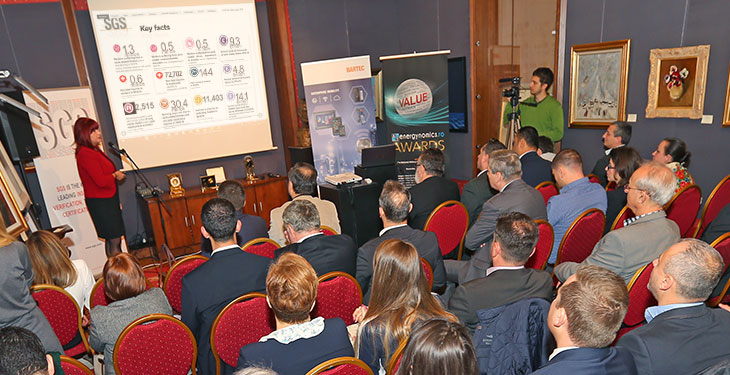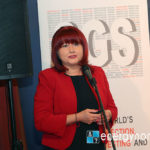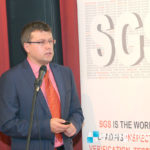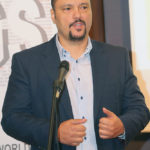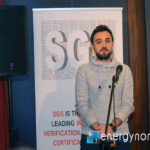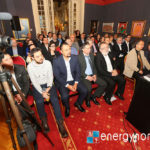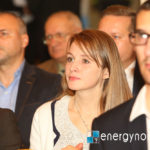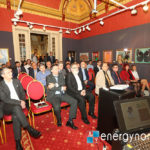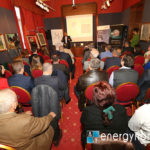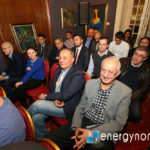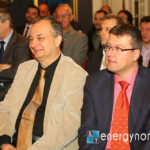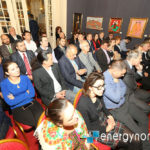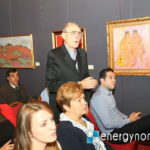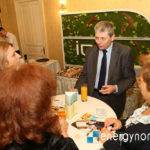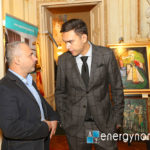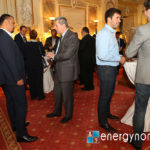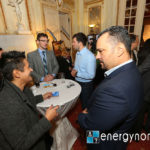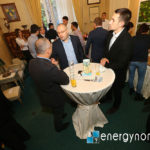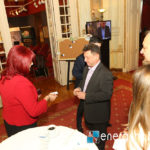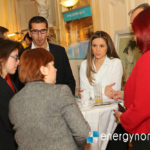Concerns about work safety are determined mostly by legal obligations imposed on companies through normative acts and regulations. Although Romania has a similar regulatory framework to the EU, regarding the working conditions and the protection of employees, the comparative figures show that as much as implementing the HS&E obligations (Health, Safety and Environment) there is much space for improvements. The subject was discussed at the last edition of the Energy Breakfast Club meetings this year, held on Wednesday, November 16th at the Cesianu Racoviţă Palace in Bucharest.
The dialogue was opened by Mihaela Sârbu, Business Manager at SGS Romania. She drew attention upon the high number of fatalities recorded in Romania, reported to the number of employees, as compared with the European average. “UK statistics show that in the last 12 months 144 fatal injuries to workers occured, from a total of over 72.700 injuries to employees reported. The comparable figures from Romania (data of the Labour Inspectorate in 2014) indicate 185 fatalities out of a total of 3.419 injured people reported.” The mortality rate in Romania is much larger and is an indicator of the low quality of work security policies applied. “In addition, even the mere number of fatal accidents is higher, while we are talking about a population of under 20 million, with about 5.5 million employees, compared to Great Britain, with 60 million inhabitants and over 30 million employees,” said Mihaela Sarbu.
DOWNLOAD THE PRESENTATION OF MIHAELA SÂRBU
SGS Group, a global leader in inspection, verification, testing and certification, has over 88,000 employees worldwide and 1,850 laboratories and offices in 160 countries. Because good practices are best when exercised at home, SGS introduced the concept of health and safety at the workplace (Health and Safety) between its business principles. Specifically, Mihaela Sarbu was referring to the 15 life rules for keeping the SGS employees safe, as a model for a preventive approach in any organization.
[fruitful_ibox_row]
[fruitful_ibox column=”ffs-two-one” title=””]
- Getting the work authorization and prevention plans
- Energy control
- Control of enclosed spaces
- Control of work at height
- Wear flotation devices
- Wear your seat belt
- Wear your helmet and reflective clothing
- Engine running – keep the phone away
[/fruitful_ibox]
[fruitful_ibox column=”ffs-two-one” title=”” last=”true”]
- Respect the speed limit
- Managing fatigue
- Respecting the prohibited substance abuse policy
- Eliminating the flammable sources
- Control of working around mobile equipment
- Choking Hazards
- Get out of the line of fire!
[/fruitful_ibox][/fruitful_ibox_row]
Crystal – the incident management & reporting tool
Mihaela Sarbu briefly presented the Crystal online platform, a system for employees, contractors and those working on behalf of SGS to ensure compliance. Through Crystal, the SSM incidents – operational safety and environment, security incidents, “near miss” type incidents, as well as the hazards / risks (potential incidents) are reported.
In his turn, Iulian Rusu, ENVI coordinator within SGS Romania, detailed the main solutions and services offered by SGS, as an integrator of EHS solutions: environmental services (in the field, in laboratory), occupational health and safety consultancy, sustainable development and resource management.
The advantage of being part of a big international group is translated into local expertise (more than 590 employees in Romania) and global services. “We are present everywhere so we can take samples under controlled conditions, and then we can analyze the samples – water, air, soil, waste, construction materials – in the most advanced laboratories of the group”. Recently, there is an increased interest from the customers about the presence of asbestos in construction materials and buildings insulation. As a good insulating material, asbestos was used extensively in industry, including in the energy sector, pointed out Iulian Rusu. “We offer services of samples analysis to identify the presence of asbestos, we can detect what type of asbestos present and can give a concentration of the asbestos in the product.”
Military solutions for maximum security at industrial facilities
No matter how much money you make, it’s all for nothing if someone else comes and takes it from you. It is the idea from which Bogdan Oprea, chief executive at the largest group of security companies in Romania BGS started from. “I’ve seen large corporations that had in front unrepresentative people, not for the security company, but also for the beneficiary company,” said Bogdan Oprea. Starting from scratch in 1993, BGS Group has now over 3,000 employees and a turnover of nearly 40 million euro, with approximately 21,000 customers.
BGS aims to remain an innovator in the field of security and safety, and for this it has imported a new technology already used in other countries to offer customers – large industrial facilities or office spaces – the most secure solution. “It is a hybrid system that combines military and semi-military technology with manpower”, used in the United States to protect borders, for the maximum security prisons for the security and in military units. “The Pandora system allows continuous monitoring through the use of multi-layer solutions with more efficient technology than the civil technology now in use (cameras),” said Bogdan Oprea.
Traducerea asistată de calculator reduce costurile
In his intervention, Cristi Rosu, New Business & Innovation Director at Casa de Traduceri, came with details on translation services aided by a professional computer – a solution that reduces the total costs with more than 10% (for documents of low-reiteration). For the user manuals, data sheets, technical data etc. the cost savings can exceed 30%, said Cristi Rosu.
Computer-assisted translation still relies on the expertise of human translators, but it offers a much better quality as the software ensures consistency of the translation, a consistent translation of the important terms thanks to customized glossaries and automated evaluation of quality: checking numbers, punctuation, formatting under translation.
A third important advantage is the substantial reduction of delivery times, primarily through the possibility to include more translators working at the same time, for translating a single document. “If you have a tender book – which we know, must be translated from one day to the next, because the tender is near! – it can be worked upon by more translators at the same time. All have access to the server, all have access to the general glossary and all receive suggestions in real time about what the others have translated, so that the terminology will be more consistent”, explained the Cristi Rosu.
DOWNLOAD THE PRESENTATION OF CRISTI ROŞU
Over 50 representatives from Academia Titi Aur, Almaj-Albu law firm, Asociatia Romana pentru Industria de Securitate, ATREA, C Geangu Consulting, Connections Consult, CONPET, Creative Interior, Defence Unlimited,, Electrocentrale Bucuresti (ELCEN), Green Report, Hunt Oil, INCDE-ICEMENERG, Institutul National de Cercetare-Dezvoltare in Informatica, Link Builder SRL, Lucas Communications Services, Matei Conf group, Ministerul Economiei Comerţului şi Relaţiilor cu Mediul de Afaceri, MOL România, Qualis Travel, RCS & RDS, Rinf Tech, Rome Consultanta in Construcţii, S&T Romania, Suite Home, TDR Energy, Telekom, UTI, Wind Power Energy attended the presentations and participated in discussions.
The event was organized by energynomics.ro and supported by our partners: SGS România, BGS, Premier Palace SPA Hotel, Bartec, Casa de Traduceri.
Participation
This year, energynomics.ro aims to organize one more Energy Breakfast Club meetings. The schedule and the proposed themes for 2017 will be published soon.
